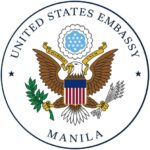
United States Embassy Manila, Philippines
October 5, 2020
Message for U.S. Citizens: Options for Notary Services during the Ongoing COVID-19 Pandemic
In light of the ongoing COVID-19 pandemic, notary services remain suspended at the U.S. Embassy in Manila and at the Consular Agency in Cebu, including for the “Affidavit of Legal Capacity to Contract Marriage.” If you need something notarized urgently, you may want to consider one of these alternatives:
- Remote Online Notarization (United States): This method of notarization currently is permitted in some form in 28 of the 50 states. The Internal Revenue Service (IRS), Fannie Mae, and Freddie Mac have issued guidance to lenders and other firms to consider accepting Remote Online Notarizations during the COVID-19 crisis.
- Remote Online Notarization (Philippines): The Philippine Supreme Court also is allowing the notarization of documents via videoconference in cases where the notary public holds office in an area under community quarantine. Please visit the Philippine Supreme Court website or contact the Integrated Bar of the Philippines for more information and for a list of local lawyers who are providing this service.
- Apostille: Philippine notarizations are accepted and recognized for use in the United States in compliance with the Hague Convention Abolishing the Requirement of Legalization for Foreign Public Documents (Hague Apostille Convention).
Documents that carry a Hague apostille* are entitled to recognition in any other convention country without further authentication. The United States and the Philippines are both party to this convention. U.S. federal courts and state authorities should accept documents with the Hague apostille. For private transactions, please check with the other party first to make sure they will accept notarization under the Philippine system.
* An apostille is a certificate that authenticates the origin of a public document.
Philippine public documents such as National Bureau of Investigation clearances, birth certificates, and marriage certificates, among others, can be used abroad once authenticated with an apostille from the Philippine Department of Foreign Affairs (DFA).
Notarization under the Philippine system is a three-step process:
Step 1: Sign the document in front of a notary public.
Step 2: Obtain a Certificate of Authority for a Notarial Act (CANA) signed by an Executive Judge/Vice-Executive Judge/or any other office authorized as signatories for notary services; this designation is issued by the Regional Trial Court. Contact the Office of the Court Administrator to determine who may sign a CANA in your region.
Step 3: Next, visit the Philippine DFA website (https://consular.dfa.gov.ph/services/authentication/authentication-application-process) and follow the instructions to have a Hague apostille affixed to your document. Fees as of October 2020 are 100.00 Philippine pesos for regular apostille service and 200.00 Philippine pesos for expedited apostille service.
Keep in mind that if your document is written in a language other than English, you may need to have it translated by a certified/sworn translator.
Please monitor our website for updated information regarding our operating status.








